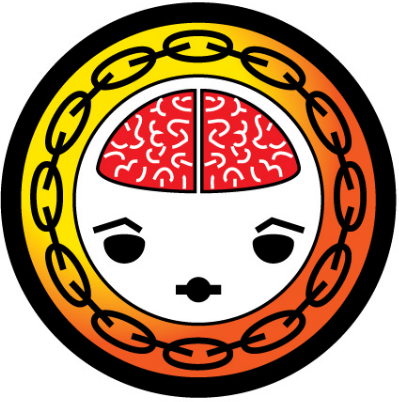This week, I spoke at the Vendor Compliance Federation (VCF). While 2009 was a bad year for VCF conference attendance (and for conferences in general), 2010 is turning out to be a banner year. There were over 300 attendees in the audience. The title of my presentation was “Carrots and Sticks”.
The conference is aimed to connect vendors– soft goods manufacturers (think apparel, footwear, etc) and consumer durable manufacturers (think consumer electronics)– to their upstream retail partners. The most valuable part of the conference for the attendees is their one on one time for retailer/supplier discussions. In the words of one attendee, “I have been talking to my contact at Costco for 21 years, this is my first time to meet him and see that he is a real person with real DNA. The ability to have a beer with him was worth the trip.” When I asked another attendee, who were the worst retailers to deal with, his answer was simply “the ones that are not here.” Anytime that we can connect retailers and manufacturers together to talk about improving the value in the value chain, I believe that good things happen.
Carrots and Sticks
I am a conference lurker. I sit in the back of the audience and gather information. I network at breaks to find out what attendees are thinking. The public discussion was on collaboration, but the coffee talk was how to avoid big sticks (retail-leverage penalities) or how to manage the compliance programs (retailer to retailer discussions). I found the gap between the public discussion and the networking ironic. On the first day alone, I counted 175 uses of the word “collaboration” in the public forum; yet, the discussion was on shipping compliance, charge-backs and deduction management. For me, it was a strong and focused discussion on how to managecrime and punishment in the relationship. What the VCF group was really talking about was collaborative data sharing.
Collaborative data sharing does not equal a collaboration relationship. What is collaboration? My seven years of research supports that TRUE collaboration happens only when there is a sustainable win/win value proposition. It is held together by six elements: join vision, incentives, leadership, skills, resources and a common plan. At the conference, I scratched my head. How did we go so wrong to think that a discussion of BIG STICKS is equal to collaboration?
The pain from deductions is more acute now than in past years. Retail rules are stricter, the policies are ever-changing, and the resultant costs of deductions are increasing. The process for resolution is messy with uncertain outcomes impacting revenue recognition processes. The impact is sizable. It represents millions of dollars with settlement resolution 6-9 months after shipment. Based on information from the Credit Research Foundation, a financial-industry group tracking credit issues, from 5-15% of all invoices are affected by chargeback deductions amounting from 4-10% of all open items on a manufacturer’s account receivables. As budgets tightened in the Great Recession, the battle between retailers and manufacturers on deductions grew worse. At the conference, retailers were walking softly, but it was clear to everyone that they carry big sticks.
Deductions are a form of supply chain waste. In lean/six sigma terms: MUDHA. Deductions, compliance programs, shrinkage, returns and excess inventory represent supply chain waste and leakage in the value chain. Yes, I agree that we need to improve supplier performance, but my question is how much of the effort is on streamlining supply chain efforts and how much of the effort is on compliance to drive deductions as a cost center for the retailer? Sadly, there was more effort on compliance management than compliance program elemination. An opportunity cost for the relationship? I think so.
In my presentation, I asked about carrots. A carrot is an incentive based on performance. The conference should be a great place to discuss the redefinition of relationship incentives. Sadly, it was not a good piece of ground to grow carrots. In my speech, I asked how many companies talked about performance-based incentives or tieing scorecard performance to buying decisions. Sadly, only seven hands went up in the audience. Yes, there were few carrots in the retail/vendor discussions at the Biltmore Hotel in Arizona. The average supplier has five scorecards in each retailer relationship, but they are seldom tied to buying decisions. And, trade promotion performance programs happen less than 10% of the time. I feel that the conference missed opprotunity. There is SO much more opportunity for the group to talk about carrots than sticks.
In 2009, the Trade Promotion Management Association (TPMA) merged with VCF. As a frequent speaker at TPMA, I was in search of some remnants of the prior organization. I found none. Trade promotions are a form of carrot. Sadly, I left Arizona finding no carrots amongst the sticks. Not even the vestiges of the prior organization…. So, if you attend the next VCF conference, prepare to walk softly and prepare for a discussion of BIG STICKS.
The Tide is Going Out
In the 1990s, the manufacturers had the power. In the past decade, the power shifted to the retailer. The power is now shifting to the shopper. As this tide shifts, I feel that the winning relationships will focus on value-based outcomes for the shopper. Social programs give us new ways to anticipate, personalize and energize the shopping experience. At the conference, I heard not one mention of the shopper, new opportunities through social programs or changing channel dynamics. This is all new fertile ground to grow carrots…. It takes incentives–carrots– to fuel true collaborative relationships. We will fall behind if we beat the relationships with big sticks. For me a missed opportunity for all….
Next week, I am speaking at the MIT forum on the use of retail data. Look for my post on insights on how to best use retail data.






